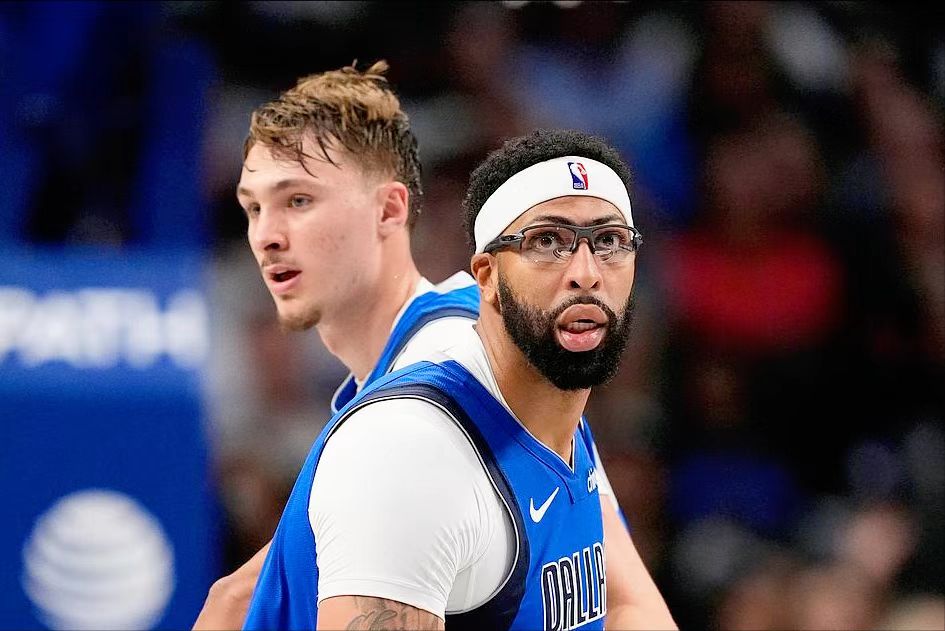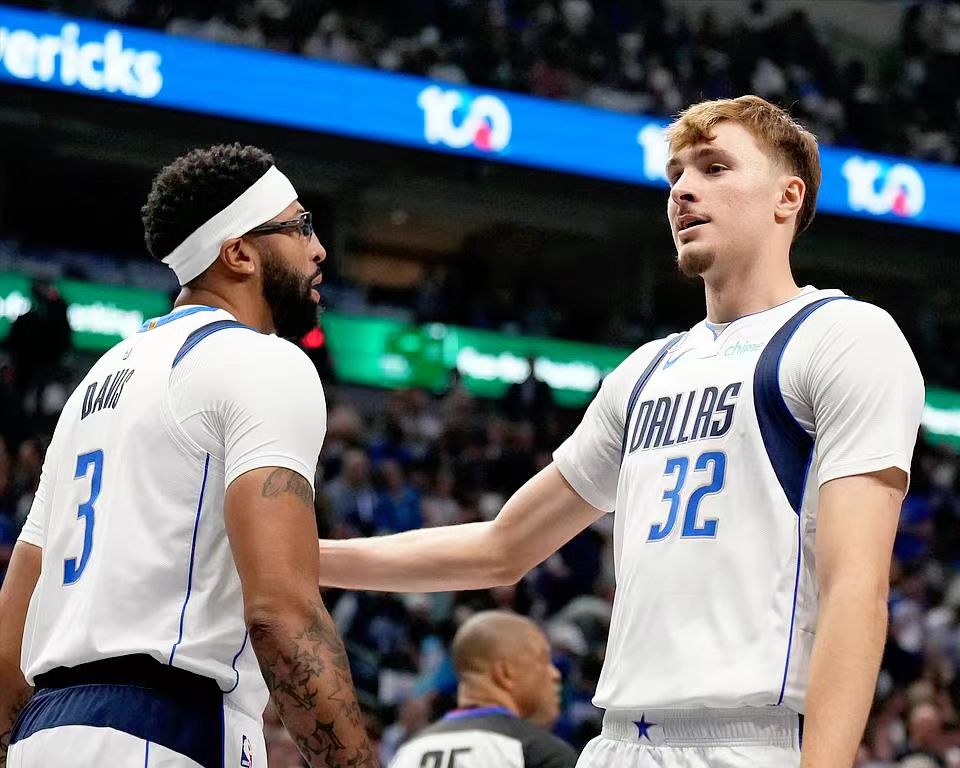Recently, some fans have wondered why the Mavericks didn't keep Anthony Davis to support the 18-year-old Slavoj Flagner in building the team. This idea sounds appealing, but it oversimplifies the NBA rebuilding process. A center of Davis's caliber would certainly be a good fit with Flagner, but the core issue is time.

Let's do the math. Flagner is only 18 this year. This season, Kidd is giving him nearly 34 minutes of playing time per game, and he's only managing 16 points and 6 rebounds. Clearly, he's not a prodigy who enters the league at his peak. Even if he develops smoothly, it will take at least four or five years for him to become a superstar capable of carrying the team. By the time he's 22 and truly takes on the responsibility, Davis will be 36—who can guarantee that a 36-year-old center can maintain his current level of 20 points, 10 rebounds, and 52% shooting percentage?
Furthermore, consider the contract. Davis still has a 3-year, $180 million contract to play. The Mavericks are in a difficult position. Keeping Anthony Davis means they can't contend for a championship until Sloan develops, and Davis, with his max contract, becomes a liability. But by the time Sloan matures, Davis will be too old to get rid of. The Mavericks know better than anyone how bad this trade would be.
So don't believe Cuban's nonsense about not considering trading Davis; anyone with eyes can see he's just trying to inflate the price. Davis is clearly capable, yet the Mavericks are keeping him sidelined. Frankly, they're afraid he'll get injured, which would affect his trade value and be a huge loss. For the Mavericks, trading Davis for a group of young players or draft picks to grow alongside Sloan is far more worthwhile than keeping a superstar nearing the end of his prime. Young players and Sloan developing together will only improve their chemistry, which is the proper rhythm for rebuilding.
Back to the trade market, Davis is currently a tempting but difficult trade. The Mavericks have stated their asking price will be similar to the assets they offered to the Rockets when Durant went to the Mavericks—the Rockets traded Jalen Green, Dillon, one first-round pick, and five second-round picks for Durant this summer. Is Anthony Davis worth that price? Statistically, at 32 years old, he has an advantage over the 37-year-old Durant, and his 20+10 average is a rare strength among powerful centers in the league. In theory, he deserves the trade.
However, the problem lies in his injury-prone nature. Over the past three seasons, Davis has missed an average of 23 games per season. This 3-year, $180 million contract means the team taking it is essentially gambling on his ability to stay healthy for the next three years—this isn't an investment, it's a high-stakes gamble.
This is also why the Lakers explicitly refused to trade Rivers for Davis. Some fans say that Davis playing power forward for the Lakers, paired with LeBron James and Luka Doncic, would create a championship-contending lineup, but is it really that simple? The last time Davis won a championship with the Lakers, frequent injuries caused the team to miss the playoffs repeatedly. If the Lakers were to trade Rivers, a consistent scorer, for Davis, the entire team's offensive system would collapse should Davis get injured again. The Lakers can't afford that risk.
Currently, the two teams most interested in Davis have completely different styles. The first is the Bulls, whose advantages are obvious: Chicago is Davis's hometown, so he's likely willing to come; moreover, the Bulls have a large number of expiring contracts, making it easy for them to take on Davis's 3-year, $180 million contract. The Bulls are currently 9-7, ninth in the Eastern Conference, a strong start followed by a decline. Their core player, Gidis, who was re-signed in the offseason, is averaging 20.9 points, 10.4 rebounds, and 9.6 assists. If they could trade some expiring contracts and a few first-round picks for Davis, their interior strength would be significantly enhanced, making this a very worthwhile trade.
The other team is the Spurs, whose plans are more long-term. The Spurs are offering Barnes, Vassell, and two first-round picks. Their roster is full of young players, so they're not worried about extending Davis's contract. More importantly, the frontcourt duo of Wimbledon and Yamada perfectly complements the Spurs' twin-tower tradition—Wimbledon has height and wingspan, while Davis has strength and experience. This frontcourt combination is an absolute no-fly zone in the league. Many say that if the Spurs want to emerge from their rebuilding phase, Davis is the most crucial piece of the puzzle.
Actually, Davis's situation is quite poignant. He has the ability to earn a max contract, but his injury history has made him a bargaining chip for various teams; he wants to win, but the Mavericks can't provide a championship-contending environment, leaving him on the trading block. When Cuban ultimately trades him, he will likely consider Davis's wishes—after all, if Davis doesn't want to go, even if the trade goes through, it won't create any competitive strength.

Ultimately, this is the reality of the NBA: a star's peak only lasts a few years, and a team's rebuilding window waits for no one. The Mavericks' decision to let Davis go wasn't due to a lack of recognition of his ability, but rather an unwillingness to gamble 3 years and $180 million on an "unknown future"; Flagner needs time to develop, but Davis can't afford that. For Anthony Davis, whether he goes back to his hometown with the Bulls or joins the Spurs to form a twin-tower team, finding a team that truly needs him and can help him contend for a championship would be the best outcome.



You must be logged in to post a comment.